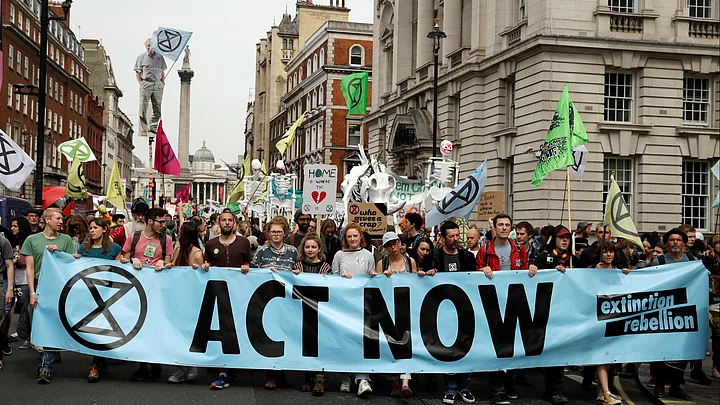The United Kingdom is planning to become the first major economy to reach zero carbon emissions by 2050 to tackle climate change.
Prime Minister Theresa May on Wednesday, 12 June, said that the time has come to safeguard the environment for “our children.”
The UK already has a 2050 target – to reduce emissions by 80 percent. That was agreed by MPs under the Climate Change Act in 2008, but will now be amended to the new, much tougher, goal, a move widely praised by green groups.
Legislation aiming to achieve that was laid out in the Parliament on Wednesday to amend the Climate Change Act passed in 2008.
The new law should ensure that United Kingdom is on track to become the first G7 country with legally binding plans for net zero emissions.
“Now is the time to go further and faster to safeguard the environment for our children.”Outgoing UK Prime Minister, Theresa May
"This country led the world in innovation during the Industrial Revolution, and now we must lead the world to a cleaner, greener form of growth. Standing by is not an option," she said.
‘Net Zero’ Greenhouse Gases by 2050
The actual terminology used by the UK government is “net zero” greenhouse gases by 2050.
That means emissions from homes, transport, farming and industry will have to be avoided completely or - in the most difficult examples - offset by planting trees or sucking CO2 out of the atmosphere, the BBC reported.
The government's advisory Committee on Climate Change recommended the "net zero" target in May.
Its report said if other countries followed the UK, there was a 50-50 chance of staying below the recommended 1.5C temperature rise by 2100.
A 1.5C rise is considered the threshold for dangerous climate change.
Focus Now on EU to Match: Paris Climate Deal Architect Tubiana
Laurence Tubiana, an architect of the crucial Paris climate agreement, told the BBC: “This is a historic commitment that will reverberate right around the world. All eyes will now turn on the rest of the EU to match this pledge."
PM May said that the UK led the world to wealth through fossil fuels in the industrial revolution, so it was appropriate for Britain to lead in the opposite direction.
Downing Street has said it was "imperative" other countries followed suit, so there would be a review within five years to ensure other nations were taking similarly ambitious action and British industries were not facing unfair competition.
Following the Committee on Climate Change's recommendations last month, scientists, campaigners and health professionals have been urging May to bring in a net zero target before she stands down.
A group of more than 100 companies, investors and lobby groups sent an open letter to Downing Street on 30 May, calling for May to leave "a legacy of clean growth."
“We see the threat that climate change poses to our businesses and to our investments, as well as the significant economic opportunities that come with being an early mover in the development of new low-carbon goods and services,” the business leaders’ letter said.
The Cost of It All Not Known Yet
The UK government hasn not yet spelled out if the cost will fall on bill-payers, or tax-payers, or the fossil fuel firms that have caused climate change.
Chancellor Philip Hammond has warned of a potential cost of 1 trillion pounds by 2050.
The cash will have to come from somewhere, he said - maybe from schools, hospitals and the police.
The government will lay a "statutory instrument" in the Commons on Wednesday - a tactic that allows it to be fast-tracked through both houses of Parliament if other parties agree - which on this issue they generally do.
Like any government decision it could be overturned by future governments, the BBC report said.
But the majority of Tory leadership candidates are backing it - and revoking the Act would need a majority Commons vote at a time when the public appear very concerned about the climate.
(At The Quint, we question everything. Play an active role in shaping our journalism by becoming a member today.)
